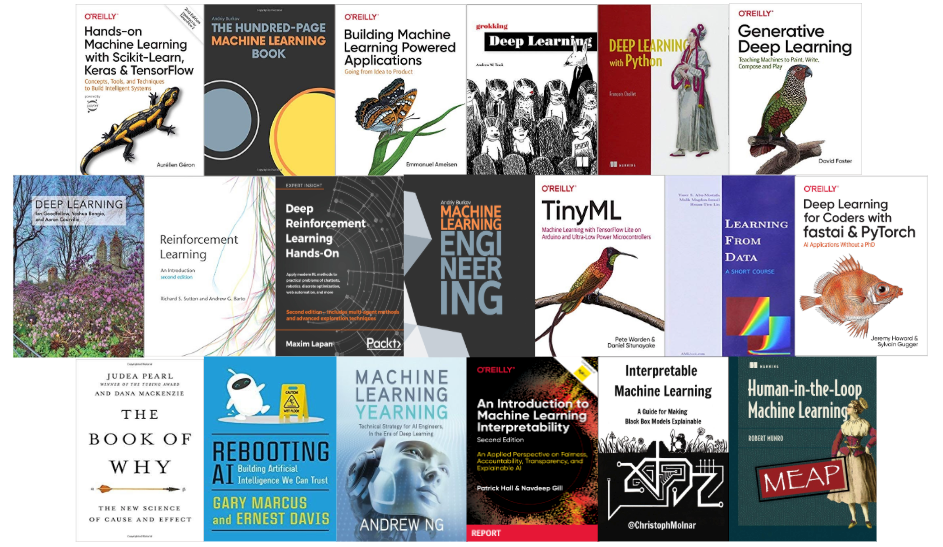Machine learning is an exciting field that has been growing rapidly in recent years and it’s only expected to continue to grow as we move forward into the future. There are many different options and topics that data scientists can explore while they’re studying machine learning, but there are some core principles and key texts that you should definitely be familiar with if you want to be taken seriously in this industry.
Today, I’ll take a look at the top machine learning textbooks that I’m currently reading and why you should read as well.
1. Artificial Intelligence: A Modern Approach
Artificial Intelligence is a massive and multi-disciplinary field, so it’s no surprise that there are plenty of resources for those looking to jump into this field. The most highly rated textbook for AI students on Amazon is Peter Norvig and Stuart Russell’s Artificial Intelligence: A Modern Approach. This book was introduced in 1995, and has been updated multiple times since then. This is a heavy book with 27 chapters that covers problem solving and search, logic and inference, planning, probabilistic reasoning and decision making, learning, communication, perception and robotics. Basically everything from common algorithms to neural networks and natural language processing.
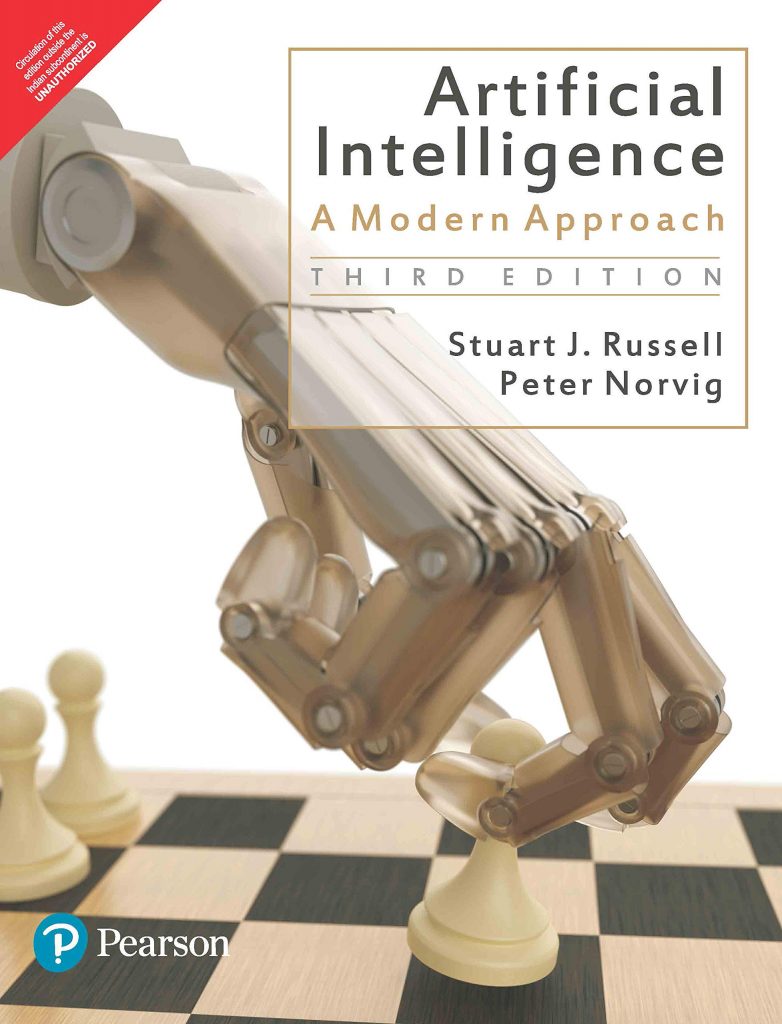
Topics Covered:
- Logical Agents
- Learning, communication, perception and robotics
- Supervised, Unsupervised learning and Reinforcement Learning, Machine Learning models and Algorithms
- Probabilistic Reasoning
- Natural Language Processing
This book is not only for students but also used by many experts in the field. Here are a few reviews from academics and professionals in the subject.
Experts Opinions
I like this book very much. When in doubt I look there, and usually find what I am looking for, or I find references on where to go to study the problem more in depth. I like that it tries to show how various topics are interrelated, and to give general architectures for general problems … It is a jump in quality with respect to the AI books that were previously available. — Prof. Giorgio Ingargiola (Temple).
Really excellent on the whole and it makes teaching AI a lot easier. — Prof. Ram Nevatia (USC).
It is an impressive book, which begins just the way I want to teach, with a discussion of agents, and ties all the topics together in a beautiful way. — Prof. George Bekey (USC).
2. Deep Learning (Adaptive Computation and Machine Learning series)
Ian Goodfellow, Yoshoua Bengio, and Aaron Courville are three researchers who stand at the forefront of Deep Learning. It comes with general context and comprehensive knowledge on mathematical foundation of Deep Learning. This book is highly recommended to read if you want to start your journey with deep learning.
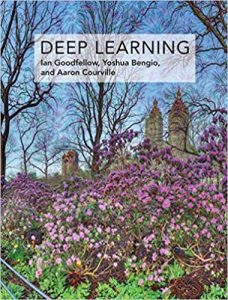
Topics Covered:
First few chapters cover mathematical concepts for deep learning. You will be able to grasp these without difficulty if you have a concise knowledge of linear algebra, probability and statistics. Part 3 covers Deep Learning Research which include different techniques and methods for deep learning which is quite challenging.
- Numerical Computation
- Deep Feedforward Networks
- Optimization for Training Deep Models
- Deep Learning Research
Experts Opinions
“Written by three experts in the field, Deep Learning is the only comprehensive book on the subject.” —Elon Musk, cochair of OpenAI; cofounder and CEO of Tesla and SpaceX.
“If you want to know here deep learning came from, what it is good for, and where it is going, read this book.” —Geoffrey Hinton FRS, Professor, University of Toronto, Research Scientist at Google.
3. Hands-On Machine Learning with Scikit-Learn, Keras, and TensorFlow: Concepts, Tools, and Techniques to Build Intelligent Systems 2nd Edition
This book is is a must-read book for everyone who seriously wants to enter this field. This is the perfect book for machine learning practitioners as it covers the most important aspects of machine learning, such as classification, regression, clustering, and dimensionality reduction. It simplifies highly complex concepts through concrete examples and real world example. It also provides detailed introduction of popular frameworks such as Scikit-Learn, Keras and TensorFlow. Author Aurélien Géron has put all the concepts in a beautiful manner so you can gain an intuitive understanding of the concepts and tools for building intelligent systems.
You need programming experience to get started, so learning Python programming language would greatly help to complete this book.
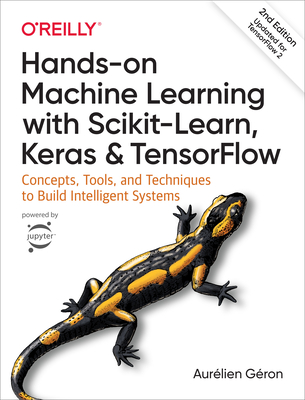
Topics Covered:
- Introduction to machine learning and history
- Use Scikit-Learn to track an example machine-learning project end-to-end
- Explore several training models such as Support Vector Machines, Decision Trees, Random Forests, and Ensemble methods
- Use the Tensor Flow library to build and train neural nets
- Dive into neural net architectures, including convolutional nets, recurrent nets, and deep reinforcement learning
- Techniques for training and scaling deep neural nets.
Experts Opinions
“An exceptional resource to study Machine Learning. You will find clear-minded, intuitive explanations, and a wealth of practical tips.” —François Chollet, Author of Keras, author of Deep Learning with Python.
“This book is a great introduction to the theory and practice of solving problems with neural networks; I recommend it to anyone interested in learning about practical ML.” — Peter Warden, Mobile Lead for TensorFlow.
4. Python Machine Learning – Second Edition: Machine Learning and Deep Learning with Python, scikit-learn, and TensorFlow 2nd Edition
You never want to miss this book If you really want to learn Machine learning. This is perfect book as its primary focus is exclusively on the implementation of a various machine learning algorithms. The book places a special emphasis on using Scikit-learn to implement these algorithms, and is a must for anyone looking to develop mastery around algorithm development.
Sebastian Raschka and Vahid Mirjalili has updated it to third edition in 2020, covering TensorFlow 2, Scikit–learn, Reinforcement learning, and GANs in the recent release.
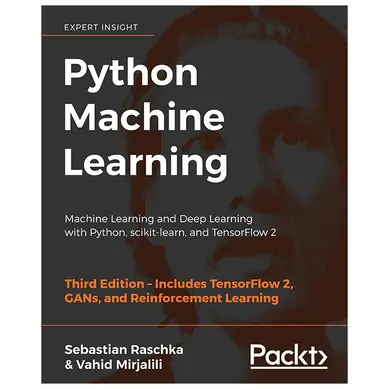
Topics Covered:
- Explore and understand the key frameworks for data science, machine learning and deep learning
- Master deep neural network implementation using the TensorFlow library
- Embed machine learning model in web application
These books are well worth to read if you want advance your machine learning knowledge and skills. I’ve printed copies of each book I mentioned above. In addition to that I also started to read several other ML books, pdf copies, watch YouTube videos and research papers to improve my ML skills and knowledge.

